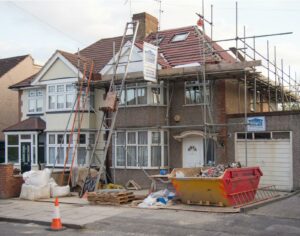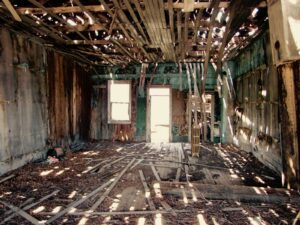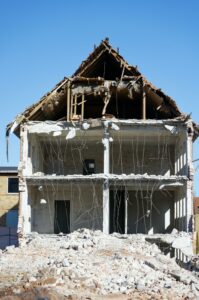Residential demolition is the process of deconstructing and removing residential structures, like houses or apartment buildings. It’s commonly undertaken for several reasons, including:
Renovation: Many homeowners and property developers opt for demolition when they wish to renovate or remodel a property. This often involves taking down parts of the building to make room for new construction or layout changes.
New Construction: Sometimes, a residential structure must be entirely demolished to make way for a new building or home on the same property. This typically happens when the existing structure is no longer suitable or doesn’t align with the new construction project’s requirements.
Safety Concerns: Residential demolition becomes necessary when a building has become unsafe or structurally unstable, posing risks to its occupants or nearby properties. In such cases, you may count on E.L Custom demolition services are performed to prevent accidents and ensure safety.

Here are some important steps and considerations in the residential demolition process:
Permits and Regulations: It’s vital to review local building codes and regulations before starting a demolition project. You may need to secure permits and adhere to specific guidelines set by your local government or municipality.
Site Assessment: Conduct a thorough evaluation of the property and the structure to determine the most suitable demolition approach. This includes identifying potential hazards and creating a plan to address them.
Asbestos and Hazardous Material Testing: Older structures may contain hazardous materials like asbestos. Testing and safe handling of such materials are critical for the well-being of workers and the environment.
Utilities and Services: Disconnect utilities such as water, gas, electricity, and sewer lines to ensure safety during the demolition process. This should be done by qualified professionals.
Demolition Method: Depending on the size and type of the structure, various demolition methods can be employed, such as mechanical demolition (using machinery like excavators and bulldozers), selective demolition (removing specific parts of the structure), or implosion (controlled explosive demolition, typically used for larger buildings).

Waste Removal: Proper disposal of demolition debris is essential. Depending on local regulations, you may need to separate and recycle materials like concrete, metal, and wood.
Safety Precautions: Safety is paramount during demolition. Ensure workers are equipped with protective gear, implement dust control measures, and set up safety barriers to prevent accidents and safeguard neighboring structures.
Environmental Impact: Minimize the environmental impact by adhering to regulations, managing waste responsibly, and considering eco-friendly demolition techniques when appropriate.
Post-Demolition Cleanup: After the demolition is complete, a thorough cleanup is necessary to ensure the site is clear of debris and safe for future construction or use.
Documentation: Keep records of the demolition process, permits, and any inspections to comply with local regulations and to have documentation for future reference.
To ensure a safe, efficient, and compliant demolition process, it’s advisable to hire experienced professionals or a reputable demolition company like El Custom Drywall. Prioritizing safety, meticulous planning, and environmental responsibility are crucial aspects of residential demolition.

